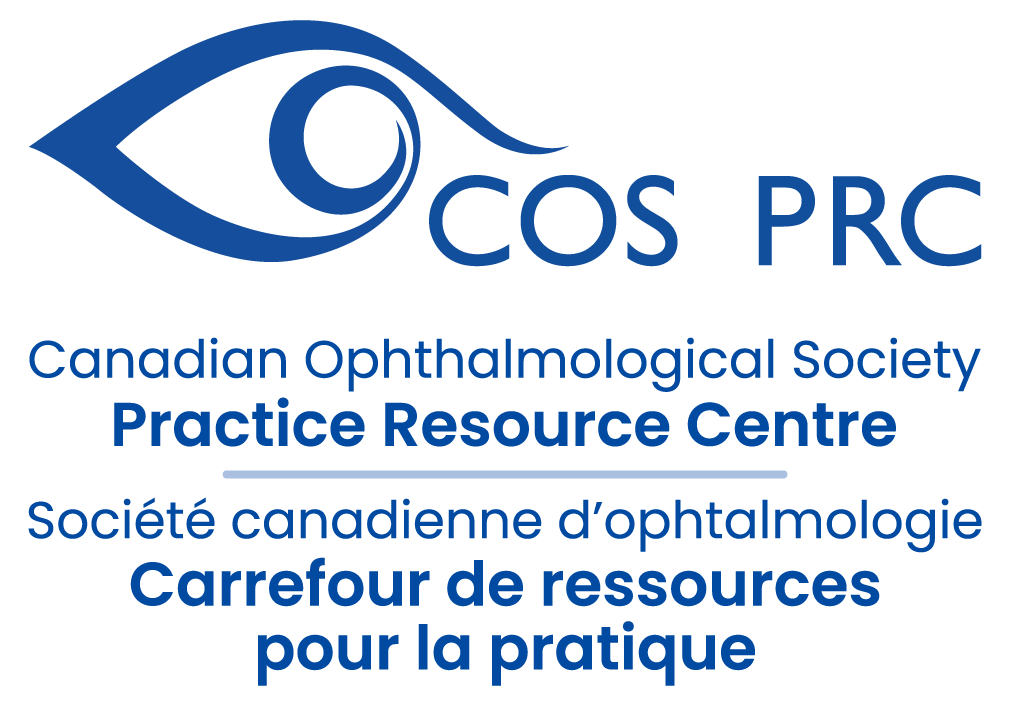Practice Update: Eye Care
This month, I want to highlight a site that offers curated content in the eye care area, which I find useful within my practice as an ophthalmologist. PracticeUpdate is an Elsevier product which provides journal scans across both the ophthalmology and the optometry literature.
In addition, it provides commentary from key opinion leaders. While not all the content is relevant to all ophthalmologists, I find it gives me a good overview of what is current and allows me to select areas of interest to pursue further learning.
PracticeUpdate is commercially supported by online advertising, sponsorship, and educational grants, however claims that it ‘maintains the highest level of academic rigor, objectivity, and fair balance associated with all Elsevier products. No editorial content on the site is influenced in any way by commercial sponsors or content contributors.’
Another feature that may be useful is that you can also signup for journal scans in other areas such as neurology or diabetes care that may be of interest. By registering, you can customize options for what information you wish to have pushed out to you, how often, and in what areas.
The site is responsive for access from a variety of devices. Check it out at www.practiceupdate.com.
Recommended by Dr. Colin Mann
Chair, Practice Resource Centre
CRS “Snapshot of the Month”: Luck of the Draw
The Canada Retina Society (CRS) publishes an interesting and educational Vitreo-Retinal related image every three months – a ‘Snapshot of the Month.’ This quarter’s snapshot was written by Fannie Nadeau and Ananda Kalevar, MD (Department of Ophthalmology, HD Hospital, Sherbrooke University, Quebec).
Snapshots entitled “Luck of the Draw” tell the story of an 80-year-old female experimented nasal visual field loss in her right eye (OD) with preserved temporal visual field. The patient had a cilioretinal artery; an anatomic variant found in 15 to 30% of the population that often supplies the papillomacular bundle, but that supplies the foveola in only 10% of eyes.
To see this quarter’s images and read more, please take a look on the Canadian Retina Society website.
If you are interested in submitting a “Snapshot of the Month” for consideration, please see the SOTM Submission process requirements and guidelines.
EyeTube
EyeTube offers a collection of bi-weekly podcasts pertaining to innovations in eye care across all sub-specialities in ophthalmology. Episode topics include, but are not limited to, the following:
- pediatric ophthalmology
- diagnostics/imaging
- ocular surface/ocular surface disease
- contact lenses and solutions
- diet and nutrition
- ulcers
- meibomian gland dysfunction (MGD)
- glaucoma
Patient-physician relationships and patient complaints are examined subject areas that are discussed in new and meaningful ways from physicians in the field. Episodes provide viewers with a diversity of subject areas and refreshing perspectives from practitioners.
Explore expansive topical tools you can use within your physician practice.
Access EyeTube from iTunes or directly from EyeTube today.
EyeRounds.org
As a physician, I am always searching for the most current content I can reference quickly that will be most relevant to my practice and sub-specialties. For those that may not be familiar with it, EyeRounds.org is a content-rich site which is a service of the University of Iowa Department of Ophthalmology and Visual Sciences. It provides access to content in a variety of forms including case reports, tutorials, videos and an online searchable atlas.
The information presented is, in many cases, useful to both trainees as well as a review for practicing ophthalmologists. One area I found fun and engaging is the series of Photo Quizzes. These eclectic collections of pictures and photos provide a quick challenge to your general ophthalmology knowledge base.
The tutorials derive mainly from Grand Round presentations and while their usefulness to practicing ophthalmologists (vs trainees) varies, there are some excellent summaries which might be especially to community ophthalmologists who don’t have ready access to ophthalmology grand rounds in their area.
Explore the site at eyerounds.org for updated content.
I hope you find this website helpful for your practice.

Recommended by Dr. Colin Mann
Colin Mann, M.D.
Chair, Practice Resource Centre
Gonioscopy.org
Gonioscopy is one of the more challenging eye examination techniques for ophthalmology residents to learn. Unfortunately, in clinical practice gonioscopy, is not performed as often as it should be; therefore, Gonioscopy.org is a great tool that can be used to share techniques, images and provide a gap in knowledge for the ophthalmological community.
Target Audience
The informative website is designed by the University of Iowa Carver College of Medicine to teach physicians and residents how to perform gonioscopy and to show the iridocorneal angle in health and in disease.
Gonioscopy Videos
Examples of diagnoses are accompanied by videos to demonstrate specific exam techniques, techniques for difficult angles, and much more. There are occasional slit lamp videos as well if they provide illustrations of the findings in glaucoma-related diseases. These patient examples display an assortment of diagnoses and diseases that physicians can learn from.
For a complete list of diagnoses with videography components, please see the detailed Diagnoses List to view specific techniques and findings. New videos are added frequently and will have red labels to indicate that they have been recently added to the website.
Access Details
To receive website updates, subscribe to the “What’s New” mailing list. New technique videos are posted regularly.
Make the Difference: Preventing Medical Trainee Suicide
Access Details
Learn more about the American Foundation for Suicide Prevention and their initiatives.
MÉDUSE
MÉDUSE offers online training modules and resources for all specialist physicians. The training courses have been designed in collaboration with medical associations in order to meet physician needs.
Méduse offers competency training modules and transferable skills, such as collaborator, leader, communicator, professional, health advocate and scholar, as per the 2015 CanMEDS Framework of the Royal College of Physicians and Surgeons of Canada.
The competencies aim to encourage specialists to gain and improve a variety of skills that are core to their practice and the delivery of quality patient care.
Learners can evaluate their knowledge with the pre-and post-tests, which are available for each course. Online learners can also share comments or read comments from fellow colleagues in the discussion forums of online courses. All the training modules offered on the e-learning platform are free for specialist doctors and accessible at all times.
Access Details
How to Access Training Modules: Sign in to the FMSQ portal and access the courses on MEDUSE.
Programme de rétroaction personnalisée sur la pratique (PRPP)
The Programme de rétroaction personnalisée sur la pratique (PRPP) is an in-depth online assessment tool that allows Québec medical specialists to obtain feedback on their practice. The voluntary assessment was developed by the Fédération des médecins spécialistes du Québec (FMSQ).
The PRPP proposes three questionnaires aimed at the colleagues and patients of each physician. You may choose the questionnaire (or questionnaires) that will most likely inform and enlighten your thoughts on your practice:
- The colleague’s questionnaire enables the physician to obtain feedback and advice from medical and non-medical colleagues on his performance of certain CanMEDS roles. It contains 24 questions.
- The patient’s questionnaire enables the physician to obtain feedback and advice from patients on their doctor-patient relationship. It contains 17 questions.
- The clinic’s questionnaire enables the physician to obtain feedback from patients on their relationship with his support staff, as well as on the management and organisation of his practice. It contains 21 questions.
The PRPP allows various respondents to fill out questionnaires anonymously by using a unique identifier number. Assessment results are confidential and only the physician is able to access the data related to their practice. Questionnaires are available in both English and French.
Watch this short video for an overview of the PRPP process:
Accreditation
This training activity is a Section 3 multisource assessment program, as defined by the Maintenance of Certification (MOC) Program of the Royal College of Physicians and Surgeons of Canada and approved by the Direction of Continuing Professional Development of the FMSQ.
Access Details
Visit the FMSQ website for more information on the Programme de rétroaction personnalisée sur la pratique (PRPP)
Prescribing Safely Canada Accredited Modules
Building on the success of Prescribing Safely Canada pilot and the feedback, the Royal College is pleased to offer accredited modules that offer more prescribing assessments across specialties in a new engaging format. For a limited time only, please take advantage of this accredited learning opportunity to assess your prescribing skills.
Target Audience
These online modules are designed for any ophthalmologist or health care professional prescribing medication to patients. Modules assess prescribing skills of health care professionals to help reduce medication errors and promote a medical safety movement. Modules include:
- Short, thematic, case-based modules that focus on a full range of prescribing competencies
- Offered in both English and French, free of charge until April 2019
- Created for Canadian physicians across specialties to address current hot topics: Frail Client, Opioid Prescribing and Antibiotic Stewardship
- Participant can complete the online learning modules at a time of their choosing
- Participant will receive a certificate of completion, and can claim 0.5 hours of MOC Section 3 credits per module or 1 hour of Mainpro+ credit per module
Learning Objectives
Upon successful completion of the learning modules, participants will have demonstrated how to:
- Prescribe effectively and safely during commonly encountered conditions;
- Plan for pharmacologic management of commonly encountered conditions;
- Identify important prescribing information that should be communicated across the patient care trajectory
CPD Credits
This activity is an Accredited Self-Assessment Program (Section 3) as defined by the Maintenance of Certification Program of the Royal College of Physicians and Surgeons of Canada, and approved by Royal College Continuing Professional Development Unit. You may claim a maximum of 30 minutes per program (credits are automatically calculated).
This two-credit-per-hour Assessment program has been certified by the College of Family Physicians of Canada for up to 3.0 Mainpro+ credits.
Access Details
Participate in the Prescribing Safely Canada online modules through the Royal College of Physicians and Surgeons of Canada.



